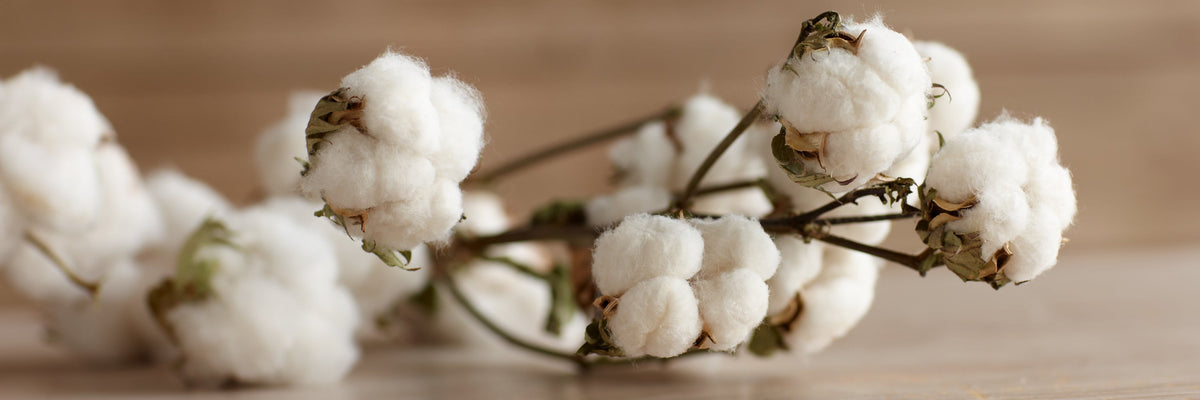
Fair Trade Certified
Going Beyond Organic
Fair Trade USA works with farms and factories around the world to improve wages, benefits, and working conditions. We pay a bit more for Fair Trade Certified™️ items, and that premium goes into an account that the farmers and workers can spend as they choose. This premium is intended to close the gap between their wages and what is calculated to be the living wage in their area.
Between 2014-2020, Coyuchi has contributed over $106,000+ in additional funds to cotton farmers, factory workers and supported projects across many categories from health and hygiene to children's education. We are happy to create products that support the well-being of our communities and natural resources. By choosing Fair Trade Certified™️ products from Coyuchi, you'll help to reduce poverty, increase opportunity, and improve the quality of life for these farmers and workers—and their families.

Through the factory program alone, Coyuchi has impacted over 2,000 factory workers through Fair Trade Premiums. In 2018, the committee voted to use their premium funds for a power inverter project. A power inverter turns direct current (DC) electricity into alternating current (AC) electricity. Having a power converter means you can plug in your appliances and devices to power them, like the electrical outlets in your house. In 2017 they used their premium dollars to buy electric burners, which is extremely important because it allows many of the workers to cook cleanly at home instead of walking long distances to buy fuel and then burn that fuel inside their homes.
For 2019, our partners elected a multitude of programs, including a children’s education fund, a home appliance project, a health kit for personal health care, and fairly priced groceries. One of Chetna’s projects involved an investment into a revolving fund at the co-operative level. This provides a safety net for farmers so they can sell their crops when they’ll make the highest profit, instead of being forced to sell when prices are low. The construction of warehouses supports this cause, keeping their cotton crops safe until the low season, when prices are higher.
Over the years, our partners at Pratima have put their Premium funds toward the construction of a community center where families can congregate and children can use the electricity to complete their homework. They also invest in 600-700 scholarships for these children every year. In addition to their education initiatives, they’ve also established a fund for women’s self-help groups, distributing loans to those interested in pursuing new fields of revenue like brick making, tailoring, and aquaculture activities. They’ve even used their funds to install drinking water pumps, water-harvesting structures, and farm ponds, plus seeds and other agricultural supplies for farmers.

Fair Trade USA is working to eliminate poverty in vulnerable communities. Roughly 10% of the world’s population (that’s 734 million people) lives on less than $1.90 per day. Farmers, fishermen, and workers are especially vulnerable to the volatility of the market, making them more likely to fall into the cycle of poverty. That’s why Fair Trade USA works hard to implement programs that keep these communities above the poverty line, while protecting workers from unsafe conditions.
These unsafe conditions include lack of access to clean water and sanitation facilities. In rural and underserved areas of the world, this plight kills millions of people each year, and leads to lost wages and productivity due to illness. High water stress and climate change are only making the situation worse. Fair Trade standards require employers to provide access to clean water and adequate sanitation facilities for their workers at all facilities—and if housing is provided by an employer, the same protections must exist in these homes as well.
I enjoy being on the FT committee. My fellow workers share their ideas with me on how we can implement premiums to help the community. I have received 4 years of Fair Trade premiums and every time, I'm proud to have been part of the program.
-Deepali Das of our Rajlakshmi Cotton Mills factory.
Fair Trade standards also exist to protect workers from exploitation, and help to ensure that they are not only safe at work, but that they’re able to share in the benefits of global economic growth. This includes a strong commitment to gender equality. Women in Fair Trade jobs receive equal pay and equal representation in positions of leadership and decision making. These standards also protect women from sexual harassment and discrimination in the workplace, working to lift up every member of these farming and working communities.
Fair Trade’s numerous initiatives focus on the UN’s Sustainable Development Goals, which call on both consumers and businesses to implement sustainability in their decision-making at every level. Purchasing Fair Trade certified goods is an easy and effective way to show support for companies with higher values—businesses who take care of their people and protect our natural resources.
The first Coyuchi products to earn full Fair Trade Certification were our best-selling Air Weight Towels, and in early 2016 our long-running Honeycomb Blanket and Honeycomb Baby Blanket became Fair Trade Certified at the factory level. We'll continue to introduce other certified products over time. To find them, just look for the Fair Trade symbol on our website and on our product packaging in stores.